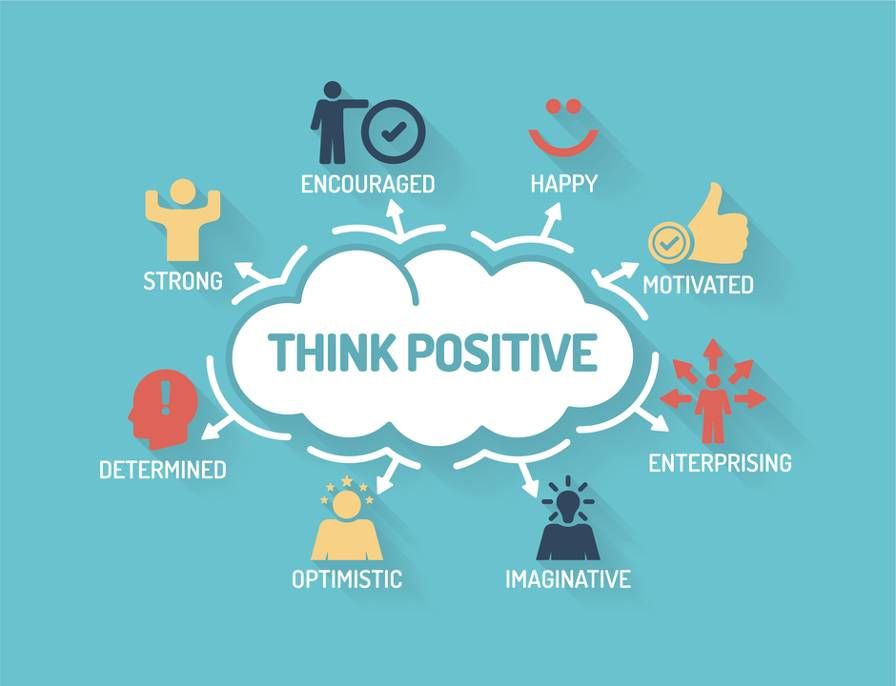

Cultivating a positive mindset is essential for overall well-being and success in life. It can help us navigate challenges, build resilience, and find joy in everyday experiences. Let’s learn more about this topic below with Eggy Car, as we explore practical strategies for fostering positivity.
A positive mindset is more than just thinking happy thoughts; it’s a fundamental approach to life that can significantly impact our mental and physical health, relationships, and overall success. By cultivating a positive mindset, we can enhance our ability to cope with stress, overcome obstacles, and maintain a sense of optimism even in difficult times.
Research has shown that individuals with a positive outlook tend to have better cardiovascular health, stronger immune systems, and longer life expectancies. Moreover, a positive mindset can improve our cognitive functions, boost creativity, and increase our problem-solving abilities. It’s a powerful tool that can transform our personal and professional lives.
However, developing and maintaining a positive mindset requires consistent effort and practice. It’s not about ignoring life’s challenges or pretending everything is perfect. Instead, it’s about approaching situations with a constructive attitude and finding opportunities for growth and learning in every experience.
Developing a positive mindset is a journey that requires dedication and patience. Here are some effective strategies to help you foster positivity in your daily life:
Gratitude is a cornerstone of positive thinking. By regularly acknowledging the good things in our lives, we train our minds to focus on the positive aspects of our experiences. Start each day by listing three things you’re grateful for. These can be simple pleasures like a warm cup of coffee, a beautiful sunset, or a kind gesture from a friend.
Consider keeping a gratitude journal where you can record your daily appreciation. This practice not only helps shift your focus to the positive but also creates a valuable record of good memories you can revisit during challenging times.
Our thoughts have a significant impact on our emotions and behaviors. When faced with a negative situation, try to reframe it in a more positive or neutral light. For example, if you’re stuck in traffic, instead of getting frustrated, use the time to listen to an audiobook or practice mindfulness.
Cognitive restructuring is a powerful technique used in cognitive-behavioral therapy that can help you identify and challenge negative thought patterns. By questioning the validity of negative thoughts and seeking alternative perspectives, you can gradually shift your mindset towards more positive and realistic thinking.
The people and environments we surround ourselves with can greatly influence our mindset. Seek out relationships with individuals who uplift and inspire you. Engage in activities that bring you joy and fulfillment. Create a living or working space that promotes positivity, perhaps by incorporating plants, natural light, or inspiring artwork.
Be mindful of your media consumption as well. While it’s important to stay informed, constantly exposing yourself to negative news can impact your mental state. Balance your information intake with positive and uplifting content that nourishes your mind and spirit.
To truly cultivate a positive mindset, it’s essential to integrate positive habits into your daily life. Here are some practices you can adopt:
How you begin your day can set the tone for the hours that follow. Create a morning routine that nurtures positivity. This might include meditation, affirmations, or gentle exercise. Take a few moments to set positive intentions for the day ahead, focusing on what you want to accomplish and how you want to feel.
Avoid immediately checking your phone or diving into work emails upon waking. Instead, give yourself time to ease into the day with activities that center and uplift you. This could be as simple as enjoying a quiet cup of tea while watching the sunrise or reading an inspiring passage from a book.
Mindfulness is the practice of being fully present in the moment, without judgment. By cultivating mindfulness, we can reduce stress, increase self-awareness, and develop a more positive outlook on life. Incorporate mindfulness into your daily routine through activities like meditation, deep breathing exercises, or mindful walking.
Even simple acts like savoring your meals without distractions or taking a few moments to observe your surroundings can help you develop a more mindful approach to life. This practice can help you appreciate the beauty in everyday moments and reduce negative rumination.
Exercise is not only beneficial for physical health but also plays a crucial role in mental well-being. Regular physical activity releases endorphins, the body’s natural mood elevators, which can help reduce stress and anxiety while promoting a sense of well-being.
Find forms of exercise that you enjoy, whether it’s dancing, hiking, swimming, or practicing yoga. The key is to make physical activity a consistent part of your routine. Even short bursts of movement throughout the day can have a positive impact on your mood and mindset.
While cultivating a positive mindset is beneficial, it’s important to acknowledge that it’s not always easy. Life presents us with various challenges that can test our resolve and optimism. Here are some strategies for maintaining positivity in the face of adversity:
Perfectionism can be a significant barrier to maintaining a positive mindset. Understand that making mistakes is a natural part of growth and learning. Instead of berating yourself for errors, view them as opportunities for improvement. Celebrate your efforts and progress, rather than focusing solely on outcomes.
Practice self-compassion when things don’t go as planned. Treat yourself with the same kindness and understanding you would offer a friend facing a similar situation. This approach can help you bounce back from setbacks more quickly and maintain a constructive outlook.
Resilience is the ability to adapt and bounce back from adversity. It’s a crucial skill for maintaining a positive mindset in the face of life’s challenges. To build resilience, focus on developing problem-solving skills, maintaining a strong support network, and cultivating a sense of purpose.
When faced with difficult situations, try to identify aspects you can control and take proactive steps to address them. Accept that there will be factors beyond your influence and focus your energy on constructive actions rather than dwelling on the negatives.
Taking care of your physical and emotional needs is essential for maintaining a positive mindset. Prioritize activities that nourish your body and soul, such as getting adequate sleep, eating a balanced diet, and engaging in hobbies you enjoy.
Make time for relaxation and stress-reduction techniques that work for you. This could include activities like reading, taking baths, practicing aromatherapy, or spending time in nature. Remember that self-care is not selfish; it’s a necessary component of maintaining your overall well-being and ability to face life’s challenges with a positive attitude.
Cultivating a positive mindset is a lifelong journey that requires consistent effort and practice. By incorporating these strategies into your daily life, you can gradually shift your perspective towards one of greater optimism and resilience. Remember that it’s normal to have ups and downs, and maintaining a positive mindset doesn’t mean ignoring or suppressing negative emotions. Instead, it’s about developing the tools and attitudes that allow you to navigate life’s challenges with grace and optimism.
As you continue on this path, be patient with yourself and celebrate small victories along the way. Each positive thought, each moment of gratitude, and each constructive action contributes to building a more positive outlook on life. With time and practice, you’ll find that maintaining a positive mindset becomes more natural, allowing you to approach each day with enthusiasm and hope.
In conclusion, cultivating a positive mindset is a powerful way to enhance your overall well-being and quality of life. By implementing the strategies discussed in this article, you can begin to transform your thought patterns and approach to daily challenges. Remember that change takes time, and it’s okay to have setbacks. The key is to persist in your efforts and remain committed to fostering positivity in your life. With dedication and practice, you can develop a positive mindset that will serve you well in all aspects of your life, helping you to navigate challenges, build stronger relationships, and find greater joy and fulfillment in your everyday experiences.